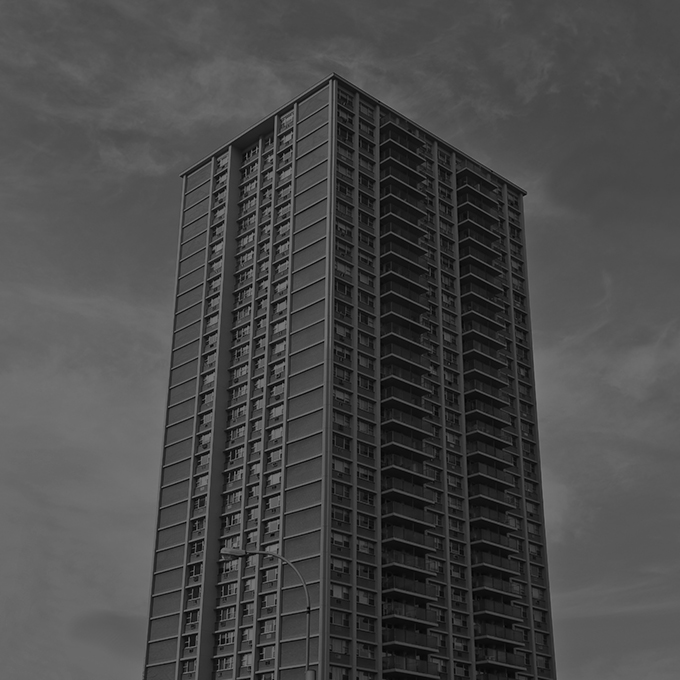REAL ESTATE INSOLVENCIES HITTING RECORD LEVELS
THE GLOBE AND MAIL - Rachelle Younglai
Residential property developers are facing rising insolvencies as they struggle with higher borrowing and construction costs – and industry experts warn the trend is likely to worsen as interest expenses remain elevated. The number of insolvent real estate companies and projects has been rapidly climbing over the past year and is now on track to surpass levels of the global financial crisis, according to data from the federal Office of the Superintendent of Bankruptcy.
“This has been a long time coming,” said Colin Doran, head of development advisory for commercial real estate firm Altus Group, who has been providing advice on distressed real estate projects for 15 years.
“Canada is on track to reach about 240 real estate insolvencies this year, which would be 57-per-cent higher than 2023 and 13-per-cent higher than 2009."
“There are no doubt more real estate projects in distress but it’s hard to tell how many can be worked out before ending up in an insolvency position. We expect there will continue to be more unsophisticated developers in trouble,” he said.
From January to May this year, there was an average of 20 real estate, rental or leasing insolvencies in Canada every month. Companies either sought bankruptcy protection or filed creditor proposals to make it easier for them to manage their debts under the Bankruptcy and Insolvency Act.
At this pace, Canada is on track to reach about 240 real estate insolvencies this year, which would be 57-per-cent higher than 2023 and 13-per-cent higher than 2009, when a wide swath of businesses ran into problems owing to the financial crisis and global recession.
And that does not include the number of developers and projects that have been forced into receivership for not paying bills. The Office of the Superintendent of Bankruptcy does not include receiverships with its publicly available bankruptcy statistics. However, insolvency experts say they are seeing more projects go into receivership.
Sam Mizrahi’s luxury downtown Toronto condo tower The One has been one of the highest profile projects to default on its loans, with lenders owed $1.6-billion. And dozens of other developers have faced similar pressure from their lenders or have filed for bankruptcy protection. “For the first time in a really long time in Canada, we are seeing some stress in the system,” said Syl Apps, who co-heads the Canadian operations of Hines Interests LP, a Houston-headquartered real estate firm that owns and manages about 850 properties in 30 countries.
By 2021, low interest rates were fuelling the pandemic real estate boom and preconstruction sales soared to near record highs of 30,550 units in the Toronto region. By then, the cost of building was 34-per-cent more expensive across the major cities compared to 2017, according to Statscan data. Then the pandemic slowed down development. Construction was hindered because workers had to socially distance on site. Developers delayed the start of construction – and they also delayed project launches.
This all added to the costs. Developers had to carry their mortgages for longer. Building materials were in short supply. And when the Bank of Canada raised interest rates, developers had to pay much more for their loans. Now that mortgages are more expensive, some preconstruction condo buyers are not able to qualify for the loan needed to close on their purchase, which is contributing to the malaise in the sector.
Today, the cost of residential construction is 81-per-cent higher across Canada’s major cities compared to 2017 and more than double – up 107 per cent – in the Toronto region, according to Statscan data. The higher borrowing costs are pushing a growing number of developers over the edge and lenders are no longer patient.
The Bank of Canada started cutting its benchmark interest rate this summer, but borrowing remains expensive and there is little demand for preconstruction condos.
Developers used to be able to pass on their higher costs to buyers but prices have jumped so much that buyers will not buy the new condo units.
RENTAL INCREASES MODERATING???
COSTAR GROUP - Gary Marr
The pace of rental apartment rate increases appears to be slowing, according to new data backed up by the latest earnings results from InterRent REIT. Asking rents for all residential property types in Canada were up 5.9% from a year earlier to a monthly average of $2,201 in July, but the increase was the slowest annual rate increase in 31 months, according to Rentals.ca and Urbanation's latest National Rent Report.
"As we move past the peak of summer, we've seen very little of the uplift typically expected with the warmer months," said David Aizikov, senior analyst at Rentals.ca, in a published commentary. "However, as the weather cools and days become shorter, rental demand typically slows which may further slow market rent growth."
Brad Cutsey, the chief executive of Ottawa-based Interrent Real Estate Investment Trust, which has a portfolio of about 13,000 suites, said he still sees rental increases above the rate of inflation but told analysts double-digit percentage annual increases may be over. "The pace of rent growth is starting to moderate and maybe peaked a couple of quarters ago," said Cutsey on a call with analysts. "It is important to keep in mind that household formation still outstrips new supply being delivered by a wide margin. We will continue to see market pressure on market rents. It might not be at the double-digit (rate) we have been accustomed to over the last eight quarters. A range of 5% to 7% is more reasonable."
For the quarter ended June 30, InterRent reported occupancy of 96.2%, up 80 basis points from a year earlier. Driven by rental increases on new leases and renewals, the REIT saw its average monthly rent increase by 6.8% for the same property portfolio compared to a year earlier.
Mark Rothschild, an analyst with Canaccord Genuity, noted that fundamentals remain strong in multifamily, and while the pace of market rent growth has moderated, InterRent management noted that the gap between in-place and market rents is 30%. "Rental housing fundamentals in InterRent's core markets remain strong as robust demand and limited new supply has resulted in consistent rent growth. Though rent control limits the ability to fully capture this spread immediately, rental rates have increased materially on turnover and leasing spreads," said the analyst in a note.
InterRent isn't ruling out transactions, but Cutsey said volatility in the capital markets decreases the chances of deals. "Given the nature of the direct property market and the illiquidity of that type of asset, the volatility in the capital markets doesn't bode for active transactions," said Cutsey. "You need things to stabilize out."
The Rentals.ca survey found that price increases have nearly peaked in Canada's two most expensive markets. Vancouver's July asking rents were $3,101, down 7.2% from a year earlier, though up 1.9% from June. In Toronto, rents edged up 0.2% monthly but were down 4.6% from a year ago, at $2,719. Edmonton had the highest annual rent growth in Canada's largest markets, up 14.3% to an average rent of $1,579. Calgary rents rose 3.7% to an average of $2,111, though Alberta's largest city continues to show slowing annual rent growth, with July's results the lowest recorded annual pace in over two years, Rentals.ca said.
NEW APARTMENT GUIDELINE INCREASE ONTARIO
REMI
The Ontario government will hold the allowable rate for residential rent increases at 2.5 per cent for a third consecutive year in 2025. The newly announced rent guideline, which goes into effect January 1, will apply to sitting tenants in units that came onto the market prior to November 15, 2018, provided no above-guideline increases have been approved by the provincial Landlord and Tenant Board.
In setting the annual rent increase guideline, the Ontario government looks to the Statistics Canada’s consumer price index as an indicator of general cost trends. The 2.5 per cent threshold for 2025 falls short of the current 3.1 per cent average inflation rate, but the two rates have moved closer than when the 2024 guideline was established 12 months ago. At that time, the average inflation rate was 5.9 per cent.
Landlords will need to give sitting tenants written notification 90 days in advance of planned rent increases, while rents can be reset to what the market will bear when units turn over. In announcing what is slated to be lowest allowable rent increase rate in Canada, the Ontario government also points to a pick-up in construction of new purpose-built rental housing over the past three years, which has resulted in the highest number of housing unit starts in more than 30 years.
SOME RECENT MARKET SALES
1986 KING STREET EAST - HAMILTON - $4,000,000 / $250,000 PER SUITE / 5.00% CAP RATE
This is the sale of a concrete walk up rental apartment building containing 16 suites. The entire building has been renovated and updated in the last five years. All the suites in the building have been renovated. The building was full and included on site laundry and surface parking for 15 cars. There was some upside in rents but for the most part the building was fully stabilized. This property was not fully marketed and the buyer was a private investor.
173 COOPER STREET - OTTAWA - $21,480,000 / $195,000 PER SUITE / 5.30% CAP RATE
This reflects the sale a 112 suite rental concrete apartment building on a 0.45 acres site. This is a prime downtown building with 12 stories and underground parking. There is on site laundry, lockers and the building is electrically heated and hydro is bulk metered. Rental upside here was estimated at around 45%. This building was privately owned for decades by the same owner. The asset was fully marketed and sold to a CLV Group.
150 HUGHSON STREET SOUTH - HAMILTON - $11,300,000 / $207,785 PER SUITE / 3.30% CAP RATE
This property is in prime Hamilton downtown and comprises 56 apartment suites in a concrete mid rise building. The building has a brick exterior, balconies, double windows and flat tar and gravel roof. There is one elevator, on site laundry and storage lockers. The main floor had a larger vacant space of around 4,000 sf that could be converted to residential suites. The owner had owned this building for decades and the building need upgrading with the rents almost 100% below market value. The property was not marketed and sold to Lankin Investments.
671 WOOLWICH STREET - GUELPH - $19,050,000 / $226,785 PER SUITE / 4.25% CAP RATE
This is the sale of a 9 storey concrete rental apartment building located in central Guelph. The site is 1.82 acres and the building has 84 suites and was built in 1990. The property has 2 elevators, on site laundry and 86 surface parking spaces. The building was purchased in 2022 by Killam Properties for $24,000,000 which is much less than the current sale. The tenant profile here is mostly seniors and there was rental upside. The property was fully marketed and sold to a private investor.
TERRA LEGNO - ENGINEERED FLOORING
Terra Legno, based in New York and Toronto is a manufacturer of engineered wood and vinyl flooring, focusing on the multi-residential and interior design markets. We are a family owned company, established in the Toronto market for over the last 15+ years. In today's rental environment we understand the importance of durability, affordability and inventory. Our vinyl flooring is 100% waterproof, constructed with a commercial wear layer, an acoustic pre-attached underpad and is CARB 2 compliant. All of our products are stocked and can be delivered within a 2-3 day turnaround. Design-wise, within the last year, we've incorporated a glue down vinyl collection for corridors and amenity spaces along with unique herringbone and rift and quarter vinyl designs.
Our showroom is conveniently located midtown in the Caledonia Design District, at 160 Tycos # 128. Please feel free to reach out to us to visit the showroom and to discuss your upcoming projects.
Terra Legno Engineered Flooring
Jonathan Spiegelman
IG : @terralegno_canada
416-663-1600
THE APARTMENT GROUP
Together the team has completed over 1,500 transactions and has sold over $8.0 billion in apartments and development land. Put us to work for you and see the results. NO ONE has sold more buildings than our group. Experience, knowledge and professionalism will insure you get the right deal or the highest price if you are selling.
The Apartment Group is a dedicated team of professionals specializing in the sale of multi-residential investment properties. With over 40 years of combined experience, the team brings together their strengths including strong negotiation and sales skills along with highly technical market analysis and appraisal methods.
We are a boutique Brokerage but have the capabilities of the larger houses without the overhead. We have: an internal database of over 10,500 active apartment and land Buyers; a list of all apartment building owners in the Greater Toronto Area; our web site gets over 50,000 hits a month; we highlight properties for sale through our newsletter which reaches 10,000 investors monthly.
MITCHELL CHANG
President & Owner,
Salesperson
Direct: 416-219-0436
mchang@cfrealty.ca
LORENZO DIGIANFELICE, AACI
Broker of Record, Owner
Direct 416-417-9098
ldigianfelice@cfrealty.ca
JAKE RINGWALD
Salesperson
Direct 416-996-7713
jringwald@cfrealty.ca



